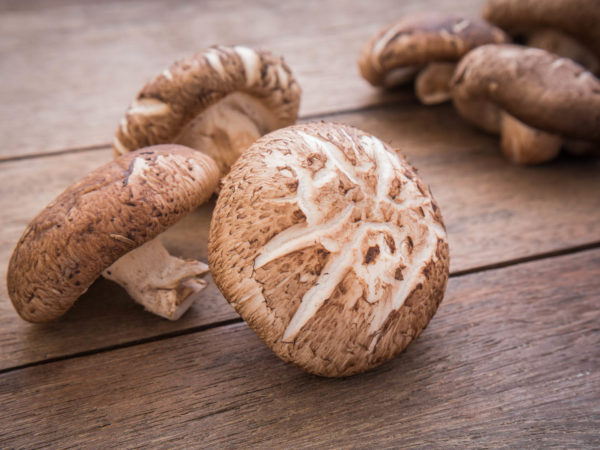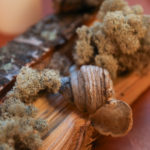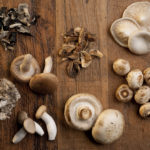Mushrooms For Good Health?
I’ve been trying to include more mushrooms in my diet because I heard you say they’re really good for you. But now I’ve been told that certain ones are carcinogenic! Which ones should I avoid?
Andrew Weil, M.D. | September 24, 2025

I’m a big fan of mushrooms, but if you’re just starting to learn about their medicinal properties, I can’t fault you for being confused about which ones are, or aren’t, good for you. In general, I advise against eating a lot of the familiar cultivated white or “button” mushrooms found on supermarket shelves throughout the United States. (Portobello and cremini mushrooms are the same species.) They are among a number of foods (including celery, peanuts, peanut products, and salted, pickled, or smoked foods) that contain natural carcinogens. We don’t know how dangerous these toxins are, but we do know that they do not occur in other mushrooms species that have been studied for enhancing wellness. To realize the maximum health benefits of mushrooms, I strongly advise against eating these or any other types of mushrooms raw, whether they’re wild or cultivated. If you’re going to eat them cook them well, at high temperatures, by sauteeing, broiling, or grilling. Heat breaks down many of the toxic constituents.
Fortunately, a range of once-exotic mushroom varieties, beneficial for a healthy diet and optimal aging, have become increasingly accessible in the United States. While some are delicious and can be incorporated into daily meals, others are strictly medicinal mushrooms, available in dried, liquid extract, or capsule form, offering various healthy aging benefits.
Here’s a brief guide to my favorite mushrooms:
- Shiitake: These meaty and flavorful mushrooms contain a substance called eritadenine, which encourages body tissues to absorb cholesterol and lower the amount circulating in the blood. Shiitakes also have antiviral and anticancer effects. Dried shiitakes, available at Asian grocery stores, are also effective. Fresh ones are readily available thanks to domestic cultivation. (To prepare, remove stems or slice fresh ones thinly; they are often tough.)
- Cordyceps: A Chinese fungus used traditionally as a tonic and restorative. It is also known for improving athletic performance. You can buy whole, dried cordyceps in health food stores and add them to soups and stews, or drink tea made from powdered cordyceps, but it is more convenient to get cordyceps extracts in liquid or capsule form. To address general weakness, take cordyceps once or twice a day, following the dosage advice on the product. For health maintenance, take it once or twice a week.
- Enoki: Slender white mushrooms that need only brief cooking and have a very mild taste. They are good in soups and salads. Enoki mushrooms have been investigated for their significant anticancer and immune-enhancing effects.
- Maitake: This flavorful Japanese mushroom is also called “hen of the woods” because it grows in big clusters that resemble the fluffed tail feathers of a nesting hen. You should be able to find these mushrooms dried or fresh in Japanese markets, gourmet foods stores, or upscale supermarkets. Extracts are also widely available. In studies, Maitake has demonstrated anticancer, antiviral, and immune-system enhancing effects and may also influence blood pressure and blood sugar levels.
- Reishi Mushroom:
- Strictly a medicinal mushroom, not a culinary one, reishi mushroom is woody, hard, and bitter. Like maitake and other related mushrooms species, reishi mushrooms have been the focus of research to improve immune function and inhibit the growth of some malignant tumors. The species also shows significant anti-inflammatory effects, reduces allergic responsiveness, and supports normal functioning of the liver. You can buy dried, ground mushrooms and use them to make tea if you don’t mind the bitterness. Otherwise, buy reishi mushroom tablets, liquid extracts or capsules, which are available online and in health food stores and follow the recommended dosage. Take reishi mushroom tablets every day for at least two months to see what it can do for you.
- Lion’s Mane: Health benefits may also be obtained from this nontoxic medicinal and culinary mushroom, which is believed to stimulate nerve growth. It also may improve mild cognitive impairment. A Japanese study published in 2009 found that test scores of study participants who took Lion’s Mane in tablet form improved as over the course of the 16 weeks they took the pills but declined afterwards. The researchers concluded that Lion’s Mane mushrooms are effective in addressing mild cognitive impairment.
- Turkey Tail: a purely medicinal mushroom with proven anticancer effects. Use extracts in liquid or capsule form.
Andrew Weil, M.D.
Learn more: All About Mushrooms
Source:
K. Mori et al “Improving effects of the mushroom Yamabushitake (Hericium erinaceus) on mild cognitive impairment: a double-blind placebo-controlled clinical trial”, Phytotherapy Research March 2009. doi: 10.1002/ptr.2634.
Originally Posted February 2014. Updated September 2025.













